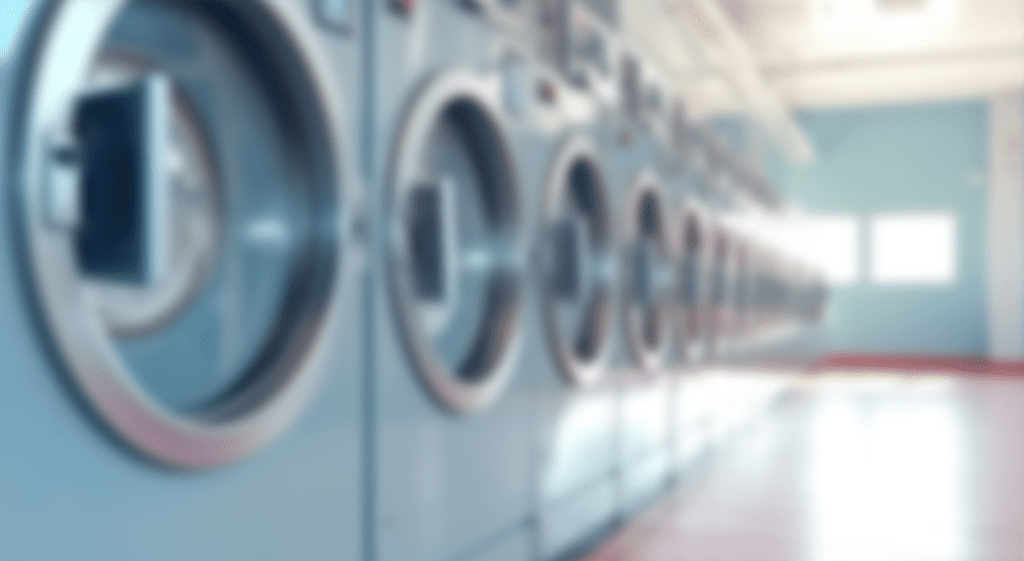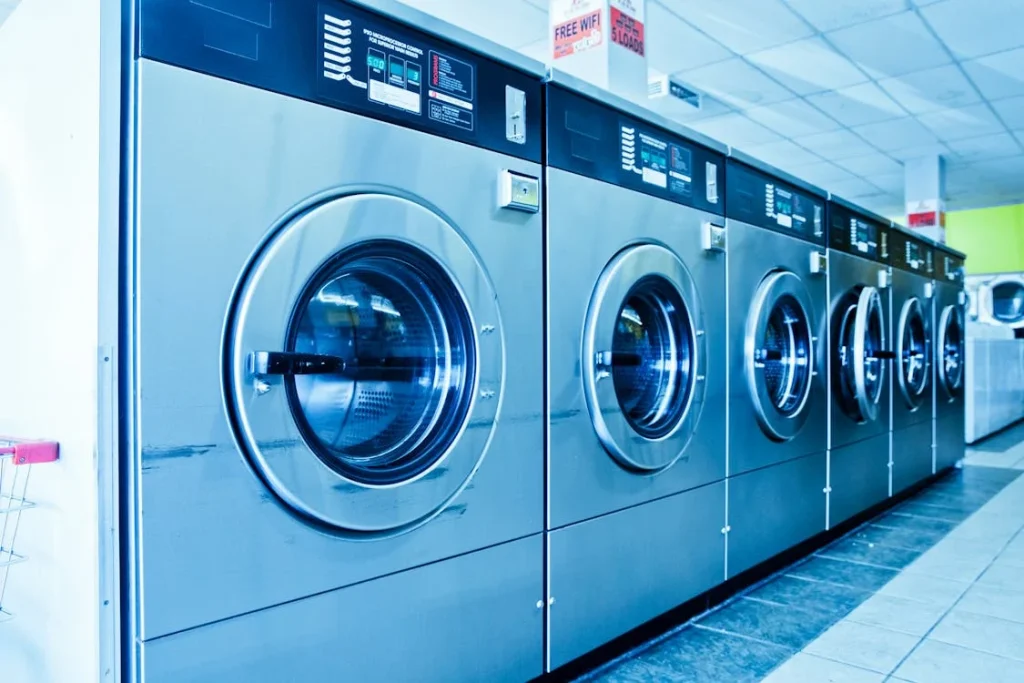Ever wondered which laundry method is the ultimate champion of clean? It’s time to pit industrial laundry against home laundry in a showdown for the ages. Let’s dive into the key differences, environmental impacts, and factors to consider when choosing the best option for your needs.

1. Introduction: The Battle of Laundry
When it comes to laundry, there are two main contenders: industrial laundry and home laundry. Both serve the same purpose—cleaning clothes—but they go about it in very different ways. Industrial laundry services are designed to handle large volumes of laundry quickly and efficiently, while home laundry is a more personal, at-home experience. So, which one is the true powerhouse? In this article, we’ll dive deep into the world of industrial and home laundry to uncover their differences, advantages, and drawbacks. Whether you’re running a business or doing laundry at home, this showdown will help you make an informed decision.
2. What is Industrial Laundry?
2.1. Definition and Purpose
Industrial laundry refers to professional laundry services used by businesses like hotels, hospitals, restaurants, gyms, and more. These services cater to large-scale laundry needs and are equipped with specialized machines and detergents designed for heavy-duty tasks. The primary goal of industrial laundry is efficiency—washing large volumes of laundry in the shortest time possible while maintaining a high standard of cleanliness.
2.2. Key Features of Industrial Laundry
Industrial laundry setups are equipped with large, commercial-grade washing machines, dryers, and ironing equipment. They use powerful detergents and chemicals to remove stains, dirt, and bacteria, making them ideal for industries where hygiene is paramount. These laundries also offer additional services like linen and towel folding, stain treatment, and even dry cleaning.
3. What is Home Laundry?
3.1. Definition and Purpose
Home laundry refers to the everyday laundry done at home, typically using a standard residential washing machine and dryer. It’s a more personalized, often slower process, but it’s something that many of us are used to. Home laundry gives individuals control over the products they use and the time they dedicate to washing clothes.
3.2. Key Features of Home Laundry
Home laundry systems are typically more basic compared to industrial setups, relying on smaller machines that can handle a limited volume of clothes. Most residential washing machines have cycles for washing, rinsing, and spinning, but they lack the heavy-duty power and specialized options that industrial machines have.
4. Understanding Laundry Needs
Before we delve into the specifics, let’s clarify the differences between industrial and home laundry.
4.1. Industrial Laundry: A Commercial Necessity
Industrial laundries are designed to handle large volumes of laundry, often for businesses such as hotels, hospitals, and restaurants. They use specialized equipment and detergents to efficiently clean and sanitize a variety of fabrics.
4.2. Home Laundry: A Personal Choice
Home laundry, on the other hand, is a personal task that involves washing and drying clothes, linens, and other items in a residential setting. It’s a convenient way to keep your belongings clean and fresh.
5. Comparing the Key Factors: Industrial vs. Home
Let’s break down some of the key factors that differentiate industrial laundry from home laundry.
5.1. Cleaning Efficiency
When it comes to cleaning power, industrial laundry services pull ahead. With industrial-grade detergents and massive washing machines, they can tackle large amounts of laundry at once, delivering a deep clean that’s hard to match at home.
5.1.1. Speed and Volume
Industrial laundries are designed to clean laundry in bulk, often processing hundreds of pounds of fabric in a single load. This allows businesses to meet high demand efficiently. On the other hand, home laundry is limited to the size of your washing machine, typically holding only a small load at a time.
5.1.2. Detergents and Chemicals
Industrial laundries often use specialized detergents and chemicals designed to break down oils, grease, and stubborn stains. These are much more powerful than standard home laundry detergents, which are formulated for gentler cleaning.
5.2. Cost and Value
When comparing the cost and value of industrial vs. home laundry, it’s important to think about both short-term and long-term expenses.
5.2.1. Upfront Costs
Starting with home laundry, all you need is a washing machine and a dryer—either of which can be purchased at an affordable price. Industrial laundry, however, requires a significant investment in machinery and chemicals, not to mention the cost of running a commercial facility. This makes industrial laundry a more costly option upfront.
5.2.2. Long-Term Value
While home laundry may seem like the cheaper option initially, it comes with ongoing costs—electricity, water, detergent, and repair bills for the machines over time. Industrial laundry, on the other hand, can offer a better long-term value for businesses that need to do large quantities of laundry regularly, especially when factoring in labor costs and time savings.
5.3. Environmental Impact
Both home and industrial laundry have environmental implications, particularly in terms of water and energy consumption.
5.3.1. Energy Consumption
Industrial laundry services tend to use a lot more energy due to the scale of operations. However, these facilities are typically more efficient in terms of energy use per pound of laundry processed. Home laundry machines consume less energy per load, but over time, the cumulative effect of many small loads can add up.
5.3.2. Water Usage
Water is a major concern for both types of laundry. Industrial laundries use massive amounts of water, but modern machines are designed to minimize water waste. Home laundry machines, especially older models, can be less efficient in terms of water use per load.
5.4. Maintenance and Durability
When it comes to keeping things running smoothly, the durability of equipment plays a big role.
5.4.1. Lifespan of Machines
Industrial washing machines are built to last for years, often decades, given their heavy-duty nature. In contrast, home laundry machines may need repairs or replacements every 7-10 years, depending on usage and maintenance.
5.4.2. Repair and Service
In terms of repair, industrial laundry services typically have a dedicated team for regular maintenance, ensuring the machines are always in top shape. Home laundry machines may require occasional repairs, which can be costly if not properly maintained.
6. Choosing the Right Option: Industrial or Home
Choosing between industrial and home laundry depends on your needs. Let’s break down when each option is ideal. The best option for you will depend on your specific needs and preferences.
6.1. Factors to Consider
When choosing between industrial and home laundry, consider the following factors:
- Volume of laundry: If you have a large volume of laundry, an industrial laundry may be more efficient and cost-effective.
- Time and convenience: If you’re short on time or prefer not to do laundry yourself, an industrial laundry with pick-up and delivery services may be a good option.
- Environmental impact: If you’re concerned about the environment, consider using eco-friendly detergents and reducing water and energy consumption.
- Cost: Compare the upfront and ongoing costs of industrial and home laundry to determine the most cost-effective option for you.
6.2. When to Opt for Industrial Laundry
If you’re running a business, especially in hospitality, healthcare, or food services, industrial laundry is likely the better option. The volume and speed required for these industries are simply too much for home laundry to handle.
Industrial laundry may be the best choice for:
- Businesses that need to process large volumes of laundry
- Individuals who are short on time or prefer not to do laundry themselves
- People who want to ensure the highest level of hygiene and sanitization
6.3. When to Stick with Home Laundry
For individuals or families with smaller laundry needs, home laundry is the more convenient and cost-effective option. It’s great for day-to-day use and can save you money in the long run—especially if you don’t need to do laundry in bulk.
Home laundry may be a good option for:
- Individuals who enjoy doing laundry themselves
- People who have a small volume of laundry
- Those who prefer to control their own detergents and cleaning practices
7. Conclusion: The Final Verdict
The choice between industrial and home laundry ultimately depends on your individual needs and preferences. Industrial laundry shines in speed, scale, and efficiency, making it ideal for businesses with high-volume laundry demands. Home laundry, however, is a practical, convenient solution for personal use and small-scale needs.
Whether you’re a business owner or a homeowner, understanding the pros and cons of both options will help you make the best decision for your laundry needs.
Spin Washing is focused on industrial laundry equipment, once you have related requirement, you can freely contact us to enhance your speed washing needs.
8. FAQs
What are the main differences between industrial and home laundry detergents?
Industrial laundry detergents are often formulated to remove tough stains and sanitize fabrics more effectively than home detergents. They may also be concentrated to reduce packaging waste.
Can home laundry machines be as efficient as industrial machines?
While home laundry machines have improved in efficiency over the years, they generally cannot match the capacity and efficiency of industrial machines.
Is it more environmentally friendly to use an industrial laundry or a home laundry?
The environmental impact of both industrial and home laundry can vary depending on factors such as machine efficiency, detergent use, and water and energy consumption.
What is the best way to remove tough stains from laundry?
Pre-treat stains with a stain remover before washing and follow the care label instructions. Industrial laundries may have specialized stain removal techniques.
How often should I wash my towels and sheets?
Towels should be washed after 2-3 uses, while sheets can be washed weekly or every other week.
What’s the difference between industrial and home laundry detergents?
Industrial laundry detergents are designed to break down tougher stains and are often more concentrated, while home detergents are formulated for everyday cleaning.
Can home laundry machines handle large loads?
While home machines can handle reasonably sized loads, they can’t compare to industrial machines, which are designed for larger volumes.
Are industrial laundry services more eco-friendly than home laundry?
Industrial laundry services are more efficient in terms of energy and water usage per load, but they still consume more resources overall due to the scale of their operations.
How often do industrial laundry machines need maintenance?
Industrial machines are built for heavy-duty use and typically require less frequent maintenance than home machines, though they do require regular checks to ensure optimal performance.
Can I switch from home laundry to industrial laundry for personal use?
While it’s not common for individuals to use industrial laundry services, some laundromats offer commercial-grade machines for personal use if you need to wash large items like comforters.
Here are some other articles that we think might interest you:
Environmental Impact of Industrial Laundry


